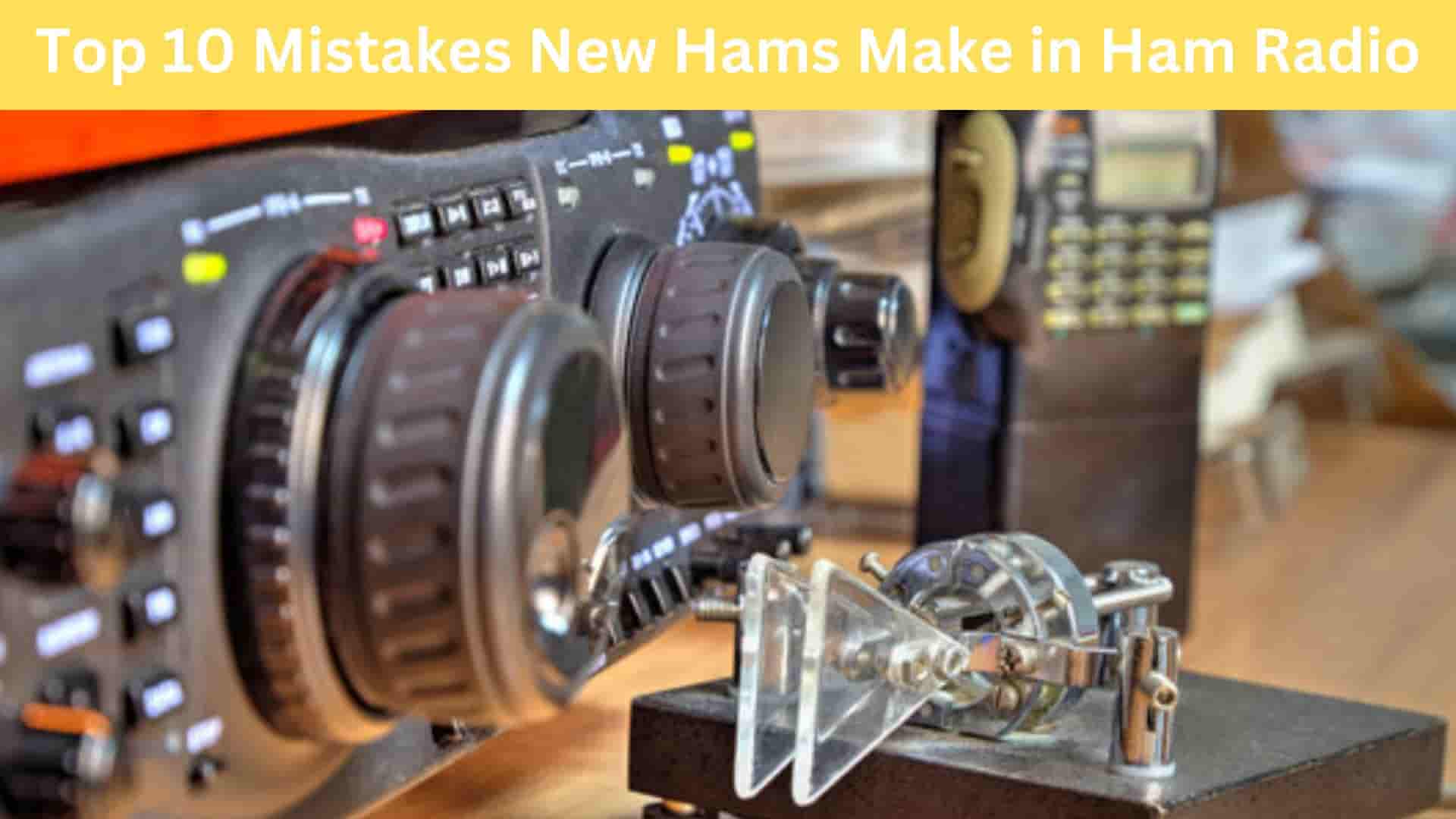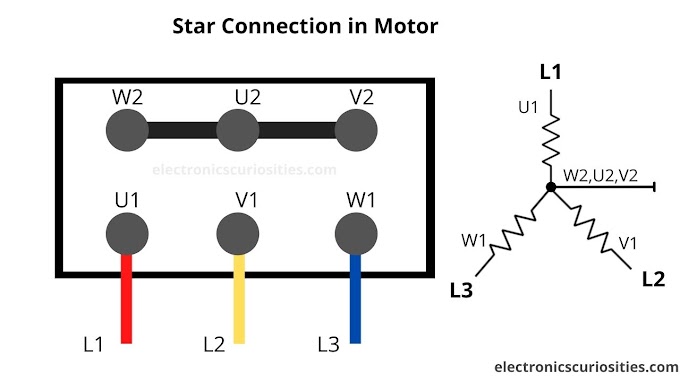
Top 10 Mistakes New Hams Make in Ham Radio
Top 10 Mistakes New Hams Make in Ham Radio
Introduction
Ham radio, also known as amateur radio, is a fascinating hobby that allows individuals to communicate with others around the world using radio waves. It offers an opportunity to explore the realms of technology, communication, and emergency preparedness. However, like any other pursuit, there are common pitfalls that newcomers may encounter. In this article, we will explore the top 10 mistakes new hams make in ham radio, providing insights and tips to help beginners navigate their journey effectively.
Get Familiar with other Ham Radio Operators worldwide on QRZ.com
Table of Contents
- The Importance of Licensing
- Neglecting Basic Equipment Knowledge
- Overlooking Proper Antenna Setup
- Inadequate Understanding of Radio Wave Propagation
- Lack of Operating Protocol and Etiquette
- Insufficient Knowledge of Emergency Communication Procedures
- Failure to Maintain and Troubleshoot Equipment
- Disregarding Safety Precautions
- Not Building a Supportive Network
- Failing to Continuously Learn and Improve
1) The Importance of Ham radio Licensing
Becoming a licensed ham radio operator is crucial before engaging in any transmissions. The licensing process ensures that individuals understand the regulations, technical aspects, and responsibilities associated with operating ham radio equipment. Obtaining a license demonstrates a commitment to learning and operating within the guidelines set by regulatory authorities, such as the Federal Communications Commission (FCC) in the United States.
2) Neglecting Basic Equipment Knowledge
To fully enjoy ham radio, it is essential to familiarize yourself with the basic functions and features of your equipment. Many new hams make the mistake of jumping straight into operation without understanding how to adjust frequency, modulation, power output, and other critical settings on their radios. Taking the time to read the manual, attend training sessions, or seek guidance from experienced operators can help avoid unnecessary frustration and improve overall performance.
3) Overlooking Proper Antenna Setup
The antenna is the backbone of any ham radio station. Yet many newcomers underestimate the importance of a well-designed and properly installed antenna. Neglecting proper antenna setup can result in poor transmission and reception capabilities. It is crucial to consider factors such as antenna type, height, orientation, and location to maximize signal strength and reduce interference. Consulting reputable resources or seeking advice from seasoned hams can greatly enhance antenna performance.
4) Inadequate Understanding of Radio Wave Propagation
Radio wave propagation is a complex subject that affects how signals travel from one point to another. New hams often overlook the significance of understanding the principles behind this phenomenon. Knowledge of factors such as ionospheric conditions, line-of-sight transmission, and atmospheric interference is vital for selecting the appropriate frequencies, modes, and antenna configurations for optimal communication. Exploring educational materials and leveraging online resources can assist in grasping these concepts.
5) Lack of Operating Protocol and Etiquette
Proper operating protocol and etiquette are fundamental aspects of ham radio culture. Failing to adhere to these conventions can lead to misunderstandings and conflicts on the airwaves. It is crucial to learn and follow guidelines regarding call signs, identification, using phonetics, and engaging in courteous conversations. Joining local amateur radio clubs or participating in online forums can provide opportunities to learn from experienced operators and gain practical knowledge of operating procedures.
6) Insufficient Knowledge of Emergency Communication Procedures
One of the significant advantages of ham radio is its role in emergency communication during times of crisis. Unfortunately, many new hams overlook the importance of learning emergency procedures and protocols. In high-stress situations, being able to relay critical information effectively can make a significant difference. Familiarize yourself with emergency communication guidelines, practice simulated emergency scenarios, and consider volunteering for local emergency response organizations to hone your skills.
7) Failure to Maintain and Troubleshoot Equipment
Ham radio equipment requires regular maintenance to ensure optimal performance. Neglecting routine checks and failing to address technical issues promptly can lead to equipment failure or degraded performance. It is essential to develop good maintenance habits, such as cleaning contacts, inspecting cables, and performing periodic tests. Additionally, understanding troubleshooting techniques can help identify and resolve common problems. Consulting manufacturer documentation, online forums, or local mentors can provide valuable insights in this regard.
8) Disregarding Safety Precautions
Safety should always be a top priority when operating ham radio equipment. New hams may overlook safety precautions, exposing themselves and others to potential hazards. It is vital to understand the risks associated with high-voltage equipment, grounding, lightning protection, and antenna installation. Following safety guidelines, using appropriate protective gear, and being aware of one's surroundings can prevent accidents and ensure a secure operating environment.
9) Not Building a Supportive Network
Ham radio is a social hobby, and building connections with fellow operators can greatly enrich the experience. However, some beginners fail to realize the value of networking within the amateur radio community. Engaging with local clubs, attending radio events, and participating in on-air nets not only fosters camaraderie but also provides opportunities to learn from experienced hams. Establishing relationships with mentors can be invaluable for receiving guidance and expanding knowledge in the hobby.
10) Failing to Continuously Learn and Improve
Ham radio is a dynamic field that continually evolves with advancements in technology and regulatory changes. New hams sometimes fall into the trap of complacency, not realizing the importance of staying updated. It is crucial to remain curious and dedicated to continuous learning. Keeping up with industry publications, attending workshops or conferences, and participating in training programs will help broaden your skill set and keep you informed about the latest developments in ham radio.
Practice Amateur Radio Exams related Here
Amateur Radio Basic: Radio Study Guide - Canadian Amateur Radio Basic Qualification Study Guide - Radio Book Canada
Frequently Asked Questions (FAQs)
Q1: Can I operate a ham radio without a license?
No, operating a ham radio without a license is illegal in most countries. Obtaining a license ensures that operators understand the rules and regulations governing amateur radio and promotes responsible and safe operation.
Q2: How can I prepare for the ham radio licensing exam?
The best way to prepare for the licensing exam is by studying the official amateur radio license manual provided by the regulatory authority in your country. There are also online resources, practice exams, and study guides available to help you gain the necessary knowledge.
Q3: Do I need expensive equipment to start a ham radio?
No, you don't need expensive equipment to get started in ham radio. There are budget-friendly options available for beginners, including entry-level transceivers and used equipment. It's more important to focus on learning and understanding the fundamentals of operating a ham radio before investing in advanced gear.
Q4: How can I improve my operating skills in ham radio?
Improving operating skills in ham radio comes with practice and exposure to different operating situations. Participating in on-air nets, contesting, and joining local clubs can provide opportunities to refine your skills. Additionally, actively listening to experienced operators and seeking their guidance can accelerate your learning process.
Q5: What are some common troubleshooting techniques for ham radio equipment?
When troubleshooting ham radio equipment, it is essential to start with the basics. Checking connections, ensuring a proper power supply, and examining antenna connections are good initial steps. If the issue persists, consulting the equipment manual, reaching out to online communities, or seeking assistance from knowledgeable individuals can help diagnose and resolve problems.
Q6: How can I contribute to emergency communication efforts with ham radio?
To contribute to emergency communication efforts, you can volunteer with local emergency response organizations, such as ARES (Amateur Radio Emergency Service) or RACES (Radio Amateur Civil Emergency Service). These organizations coordinate amateur radio operators to provide communication support during emergencies and disaster situations.
Conclusion
Engaging in ham radio can be an incredibly rewarding experience for newcomers. By avoiding the top 10 mistakes discussed in this article, you can set yourself up for success and maximize your enjoyment of this hobby. Remember to prioritize licensing, understand your equipment, and invest time in learning the ins and outs of operating protocols and emergency procedures. By continuously learning, building a supportive network, and embracing the spirit of amateur radio, you'll be well on your way to becoming a skilled and respected ham radio operator.
Thank You!
Have Great Day!
happy learning!
My Callsign VU3IAG
Vaishabh Jalmi
73's



